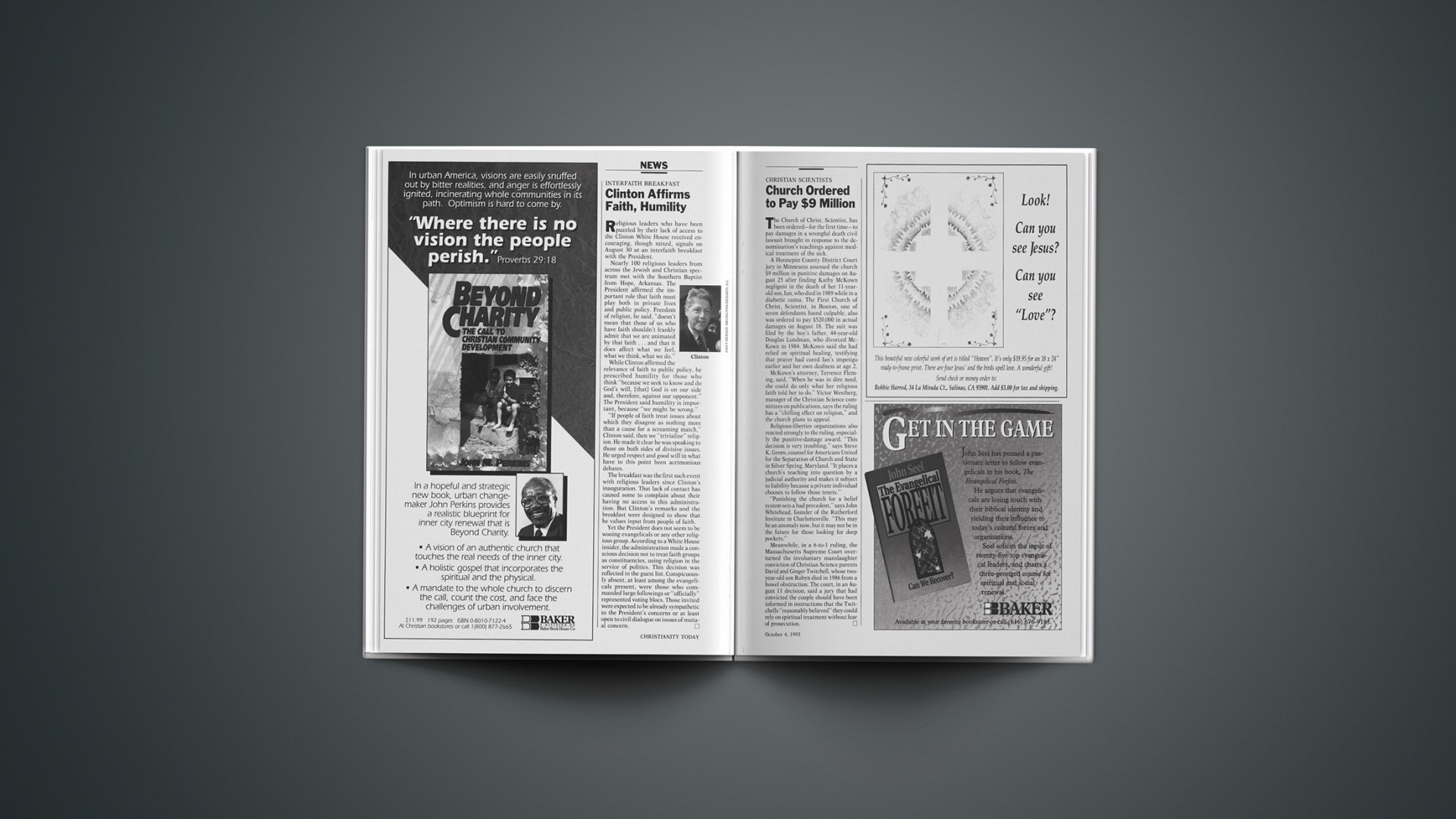Religious leaders who have been puzzled by their lack of access to the Clinton White House received encouraging, though mixed, signals on August 30 at an interfaith breakfast with the President.
Nearly 100 religious leaders from across the Jewish and Christian spectrum met with the Southern Baptist from Hope, Arkansas. The President affirmed the important role that faith must play both in private lives and public policy. Freedom of religion, he said, “doesn’t mean that those of us who have faith shouldn’t frankly admit that we are animated by that faith … and that it does affect what we feel, what we think, what we do.”
While Clinton affirmed the relevance of faith to public policy, he prescribed humility for those who think “because we seek to know and do God’s will, [that] God is on our side and, therefore, against our opponent.” The President said humility is important, because “we might be wrong.”
“If people of faith treat issues about which they disagree as nothing more than a cause for a screaming match,” Clinton said, then we “trivialize” religion. He made it clear he was speaking to those on both sides of divisive issues. He urged respect and good will in what have to this point been acrimonious debates.
The breakfast was the first such event with religious leaders since Clinton’s inauguration. That lack of contact has caused some to complain about their having no access to this administration. But Clinton’s remarks and the breakfast were designed to show that he values input from people of faith.
Yet the President does not seem to be wooing evangelicals or any other religious group. According to a White House insider, the administration made a conscious decision not to treat faith groups as constituencies, using religion in the service of politics. This decision was reflected in the guest list. Conspicuously absent, at least among the evangelicals present, were those who commanded large followings or “officially” represented voting blocs. Those invited were expected to be already sympathetic to the President’s concerns or at least open to civil dialogue on issues of mutual concern.










